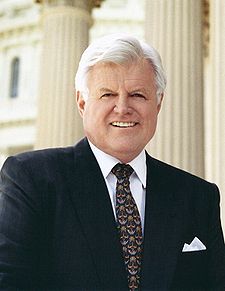
It is seldom that we lose someone of such legendary stature
as Senator Edward M. Kennedy. Though the media may try to play up every death as a
Cronkite or a Mother Theresa, I honestly don’t
feel the need to shed a tear over Michael Jackson in quite the same way as
I do over the man who fought for decades on behalf of the American people (and
in particular the people of Massachusetts) to enact reform and defend our
unique American freedoms. I am genuinely saddened to hear of Kennedy’s loss.
And yet… and yet… there’s no arguing Kennedy was a flawed
man. The mere whisper of the word “Chappaquiddick”
is enough to conjure up scandal and disgrace. One wants to forget those less
savory moments in the rush to lionize the departed… but is that ethical?
I’m not a politico, and while I follow the doings of our
congressmen in the news, I don’t delight in the minutia of their lives the way
the cable TV news networks seem to do. For the purposes of this blog, I’m more
interested in how the flurry over the passing of the larger-than-life “Lion of
the Senate” shows us how we remember, in a more general sense, those who pass
on. And I must say, there’s a great deal of mawkishness going on over Kennedy
that reflects a greater attitude of glossing over reality that seems to occur when
we remember those who’ve passed. The very word “eulogy” comes from the Greek
roots for “eu” (good) + “logos” (word). (I knew those two years of ancient
Greek would come in handy someday!)
Some argue it’s wrong to speak ill of the dead. I disagree;
if the dead were ill people, and we remember only their decent moments, who are we really remembering? Aren’t we
actually doing them a disservice by allowing them to vanish and be replaced by
some artificial construct?
So, what’s the ethical way to approach mourning and
remembrance? Orson Scott Card’s great book, Speaker For the Dead,
comes to mind. In it, Card’s protagonist “Ender” argues for speaking
accurately, dispassionately, of the deceased’s life; speaking for them, in their voice, as a way to
sum up their lives but making no effort
to moralize or judge in any way.
As the frenzy to eulogize the late senator commences, I will
be appreciative of those new and fascinating aspects of his life that are
brought to light–and wary of any false halos appearing over his head.
How do you feel the dead should be remembered?
Subscribe to receive updates from Everyday Ethics or follow us on Twitter!
